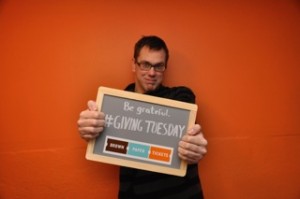
 What do you do when your event is just days away, but you still haven’t sold enough tickets? Don’t panic. There are plenty of last-minute promotions you can do to help boost sales.
What do you do when your event is just days away, but you still haven’t sold enough tickets? Don’t panic. There are plenty of last-minute promotions you can do to help boost sales.
Here’s five great ideas:
1. Email Your List
This is the perfect opportunity to use your incredibly valuable email list. These are people who know and like your events. Many may already be attending, but there’s a good chance a decent portion haven’t bought tickets yet. Send out an email to let your list know the event is happening and ask that they pass it on to friends.
Don’t just send one email and call it good. Re-send the same email to those who didn’t open it the first time. Use words that convince the attendee to buy tickets, such as, “the clock is ticking on your tickets; don’t miss your chance to see So-and-So perform.”
You don’t have to lie. If there are loads of tickets left, use a phrase like “limited quantities available.”
2. Hype It on Social
With the same language you used in your email, use your social media to hype the event. You could even post it with a video. Use Slidely or another service to create a short promo video (very easy) and use it in a paid Facebook campaign for events.
Don’t forget to link to your ticket page.
Pro tip: Ask your close friends and family to help hype your event on their social media. Only do this occasionally, because you don’t want to become THAT person.
3. Post Your Event on Community Boards
It may seem like a waste of time, but posting on community boards can help you sell those last few tickets. People look for things to do in all kinds of places. Post your event to NextDoor, Craigslist, and any other community forums you can find.
4. Contact Influencers and Bloggers
It’s probably too last to get listed in a major printed publications, but bloggers and influencers have the ability to post a few days before. Do your research and make sure that your event is a good match for the audience.
Pro Tip: To incentivize them to write, offer a couple free tickets to give away on their website.
5. Paper the House
If the event you’re putting on is something that you absolutely need to be full for some reason—for instance, to impress sponsors, or for a live recording—don’t hesitate to paper the house. Papering the house is just a fancy way of saying, “give the rest of your tickets away for free.” If the tickets are going to go to waste anyway, why not put some bodies in the seats?
Give stacks of tickets to hotel concierges, baristas and servers. Keep a stack on you at all times and give them away to anyone you feel might be interested. These people could potentially become faithful followers.
Pro Tip: Contact us if you’d like bulk tickets printed ahead of time.
Want one-on-one, completely free, promotion help from experts? Email our promo team.
Event Tips >



 Arts
Arts Comedy
Comedy Event Tips
Event Tips Film
Film Food & Drink
Food & Drink Good Causes
Good Causes Music
Music News
News Radio
Radio Roller Derby
Roller Derby